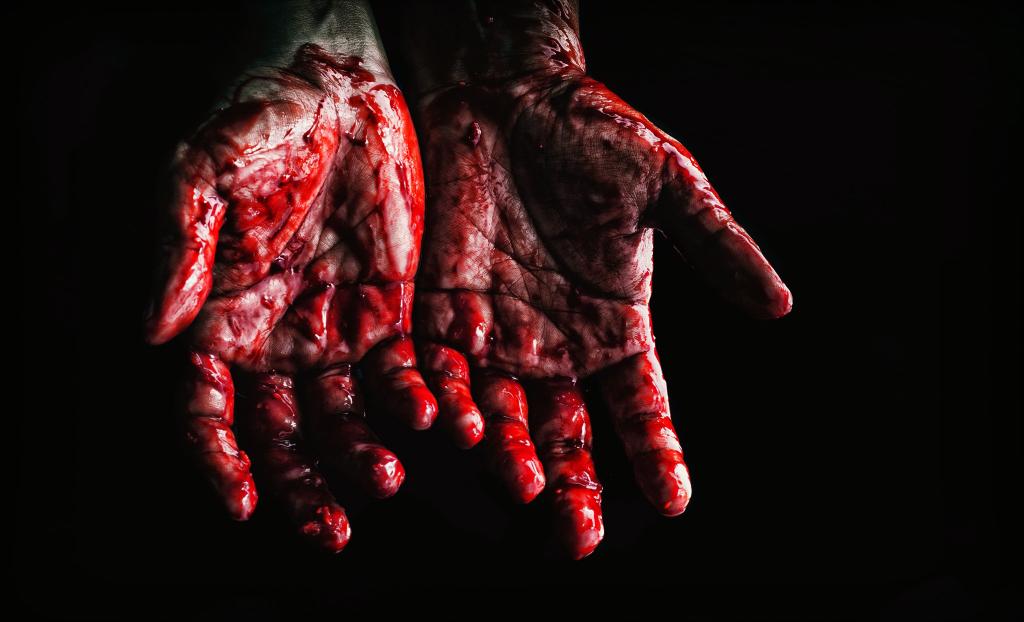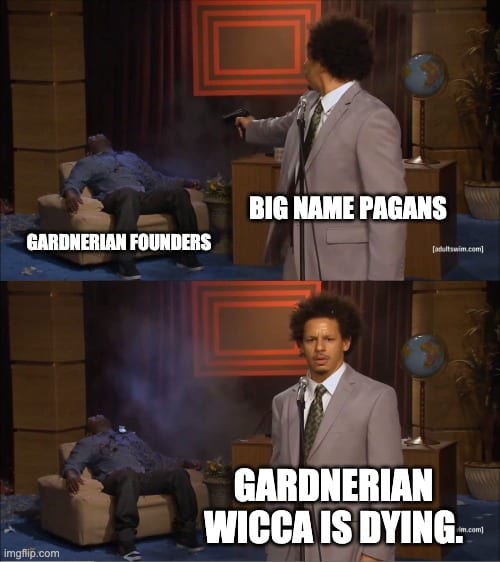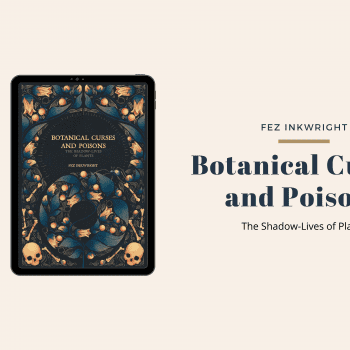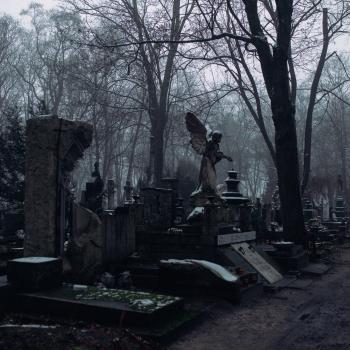
This week has felt like one of those where everything seems interconnected, and I find myself sitting here now, ruminating on Gardnerian craft, and Gardnerians as authorities on their own craft. On top of the many other things in my life, I’d been winding my way through a review copy of Christopher Penczak’s “The Mighty Dead,” which as a deathcare worker and Gardnerian I have been particularly excited to read, when I stumbled upon (Gardnerian) author Thorn Mooney’s new video titled “Was Gerald Gardner a Fraud?”
Perhaps it’s another one of those synchronicities I was mentioning, but having just read a Patheos Pagan article titled “Gardnerian Wicca: Outdated and Debunked?” by The Gardnerian Librarian, another (Gardnerian) author with whom I am acquainted, and I was intrigued to see if this video had been inspired by that post. Since both mention questions from readers, I suppose we have a legion of people clamoring to know – are we frauds?
The Mighty Dead
It was this topic of fraud, and giving credit where due, that I found at the forefront of my mind as a dug into “The Mighty Dead.” In this book, written about an ostensibly Gardnerian topic, Penczak seems at all opportunities ready to eviscerate not just Gerald Gardner, but Gardnerians, Alexandrians, British Traditionalists, and Wiccans as a whole, which I, as a reader (and Gardnerian Wiccan) found jarring and distracting from the topic.
The mighty dead themselves, as is noted by Penczak on pages 30-31, first appear in Gerald Gardner’s “Witchcraft Today,” and “The Meaning of Witchcraft,” though immediately after telling us this, Penczak lambasts Gardner, dismissing the source as it were. The author seems to claim, ultimately, that Gardner was not ‘doing it right,’ while on the same page saying that Cochrane did, “even if he didn’t use the term Mighty Dead.” I was stunned by the idea that the person from whom the phrase “Mighty Dead” was born (Gardner) was doing it wrong, but Cochrane, who never uses the term, is not?
Many Gardnerian and Alexandrian Friends
Penczak lets us know right away (page 31) that he has “many Gardnerian and Alexandrian friends,” which relies on the trope “some of my best friends are X.” We see this trope used often in television, generally when the speaker wants to absolve themselves of suspicions of prejudice, and functions as a way to convince others that there is credibility behind their statements. The problem is always that friends such as these “are rarely ever present to speak for themselves and, therefore, can neither defend nor criticize” what was said, and at no point are those “Gardnerian and Alexandrian friends” cited or named. This trope relies on being an indefensible defense, a sort of Loki’s Wager. What isn’t known can’t be discussed, and Penczak knows that someone like myself cannot argue the validity of statements given by these nameless “friends” insomuch as they regard an oathbound tradition and therefore, it cannot be argued that they are wrong.
And while as a Gardnerian there is not much in this book that I can disagree with before it becomes “neck,” I can argue that Penczak is not a Gardnerian initiate. Therefore he cannot know that “Wiccans of both a traditional stripe and those of more eclectic ways do not honor and commune with the dead often or deeply,” or that “Witches (do) not take anything from graves, and most in the fertility traditions of British Traditional Wicca do not,” or that “Gardner knew little about the Mighty Dead,” which by all citable accounts is a concept of his own creation.
Token Gardnerian
I happen to have the pleasure of being acquainted with a few members of Penczak’s group (uh-oh, it’s my “Temple of Witchcraft friend”). They are lovely people, and having spoken to Christopher Penczak once, he too seems a friendly and kind person; I only wish he had considered the human impact of those many passages. I wish there had been more balance, more meaningful citation, and most of all, credible sources willing to put their name behind the information they provided. As it was, the information in “The Mighty Dead” regarding funeral practices, funeral law, and Gardnerian Wicca (the topics about which I feel qualified to comment upon) left so much to be desired, that I simply couldn’t help but wonder if other topics in the book upon which I am not an authority were as poorly represented.
Magic Grandmas
It was, coincidentally, in the midst of my frustrations with these sweeping comments about Gerald Gardner, that I found myself listening to Thorn Mooney’s video titled “Was Gerald Gardner a Fraud?” Throughout, she conflates “magic grandmas” with fraud, dismissing the experiences of others whom she cannot know, and like Penczak and his “gardnerian friends” allows Alex Sanders and Mary Bibby to speak for all of us who may have grown up with a relative who practiced some form of magic (or what we might’ve recognized as).
“I don’t think (Gardner) was home weedleing his fingers together like Mr. Burns, you know, over like having hoodwinked a bunch of people […] I think when we use the word fraud it implies that somebody is consciously doing something in order to deceive other people […] Gardner didn’t give us a magic grandma story, so that was something at least […] people still make up origin stories.”
Perhaps at one time the “magic grandma” felt appropriate to laugh at, but today with an aging neo-pagan population, it is a reality. Thorn and I, though you may be unaware, trained under the same High Priestess, and she makes these statements knowing that my own immigrant grandmother’s Druidic-like practices, as well as my Natively descended grandmother’s practices and habits, informed the witch that I later became. Are those magic grandmas? I certainly use words like “witch” and “magic” to describe the things they did, though they would not have described themselves in such a way. Thorn does know, however, that her own witch queen has grandchildren, and that my own three children are growing up in a home with exactly the sort of “magic grandma” she derides with comments like these, and whether consideration was given to it or not, in making these comments, she renders them mundane. “Magic grandma” is not some laughable throwback to the early 1900’s, these phrases apply to real people today, people rendered false by these sweeping contextless remarks – as are Gardnerians by Penczak’s countless digs at what he believes we are, and are not.
Thoughts
But this brings me back to Thorn’s comments regarding Gardner as a fraud, and to Ash, who muses whether it’s even “useful […] to discuss” whether our forebears are outdated, debunked, or frauds. Gardner was, ostensibly, a person who was excited about the possibility that magical practice held, and drawing from sources available in his time, built the unique foundation of modern magical practice for which all Neo-pagans today owe a debt. We must acknowledge that we deride Gardner for behaviors that we benefit from, for creating, for making his magic in the public eye, for authorship, and for drawing from sources available to him. We cannot expect our founders to be saints, holding them to a standard to which we do not hold ourselves.
I don’t sit around giving much thought to whether or not Gerald Gardner was a fraud. I am not him, arguably am not doing the things that he did in his time, and I am generally inclined to leave the dead to their rest. What matters is what we make of these traditions, and that we recognize that every tradition, every coven, and each individual practitioner of them will have a different perspective on the group of which they are a part. From where I sit it seems that if Gardner is a “fraud” he becomes someone from whom others might take, and that “magic grandmas” are really just a picture of a world we all wish we’d grown up in.
Perhaps one day, when all our own books are failing the CRAAP test, Penczak, Mooney, and yes, even myself, will be considered “frauds,” and that is a day I look forward to because it means that we have grown as a community.
Besides, we’re all CRAAP in the end.
Disagree? Drop a line to me at [email protected] and tell me all about it, and either way, definitely pick up a copy of “The Mighty Dead” to read for yourself – you should never listen to people on the internet.
Edit: A reader reached out to me to note that the phrase “mighty dead” occurs in English poetry during the 19th century, and gave an example of Tinsley Pratts poem, titled “The Mighty Dead” from 1897! Thank you for both the message, and the beautiful poem! I’m not sure I know of a magical usage earlier than Gardners, but I would be totally open to, and curious about, anything you readers happen to know of!


















